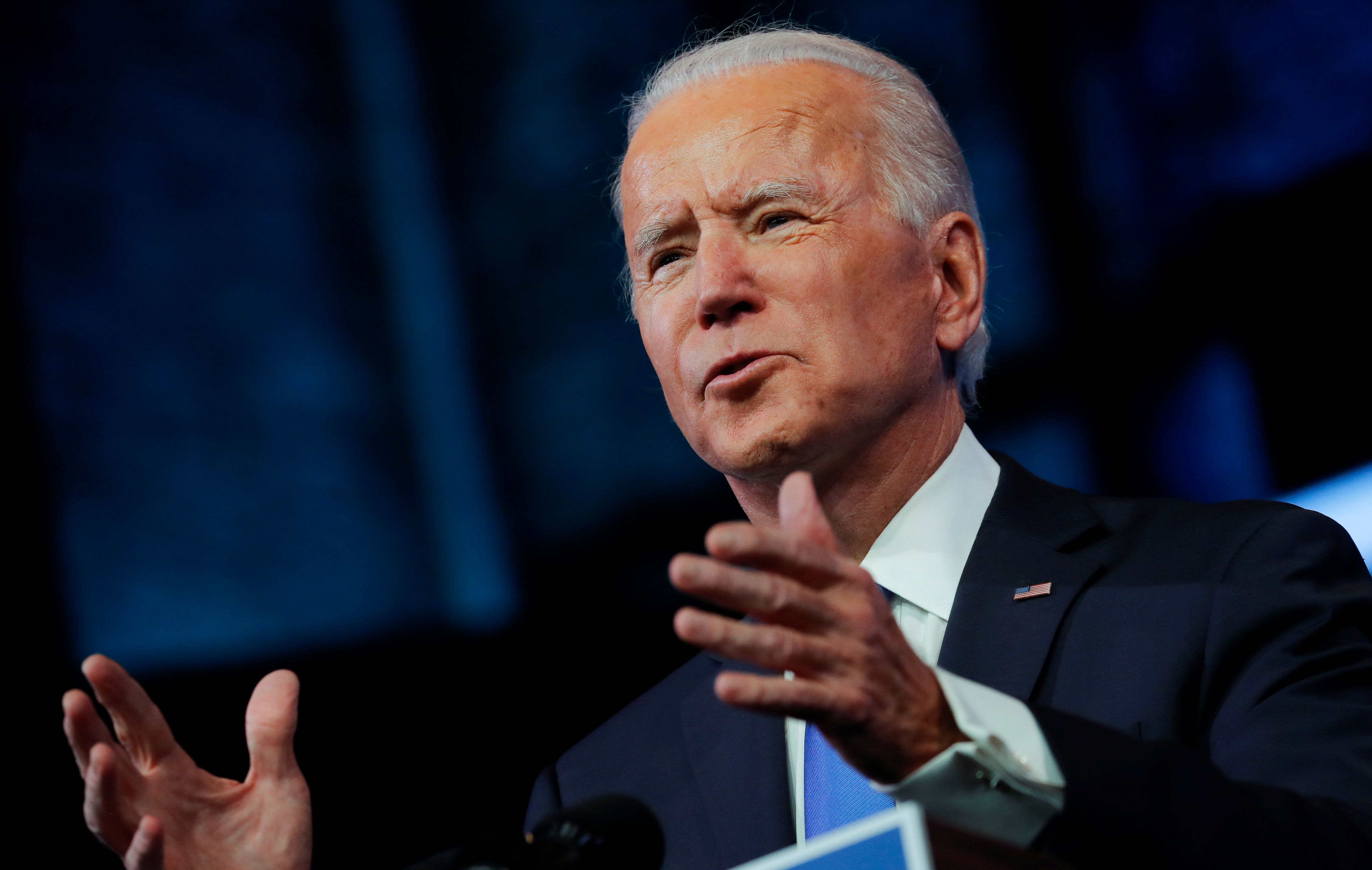Hoping for a Change: Germany and the U.S. after Biden’s Victory

In the 2018 coalition agreement, the CDU/CSU and SPD government pointed to the need to adapt Germany’s policy to “fundamental changes” taking place in the U.S. This reflected the dilemma faced by Germany after the changes in American foreign policy following the 2016 presidential election. Transatlantic relations are a pillar of German foreign policy, but the actions of the Trump administration have made it difficult to pursue Germany’s interests. The situation was further complicated by the U.S. president’s rhetoric towards Germany and his undermining of NATO credibility. Therefore, Biden’s victory has been positively received in Germany and is seen as an opportunity for the U.S. to change its political course.
The U.S. in German Politics
The United States plays a significant role in Germany’s ability to pursue its interests and this relationship determines the uniqueness of transatlantic relations in German foreign policy. The U.S.—the world’s largest economy—influences the architecture of the global market and to a large extent determines the future of free-trade rules that benefit Germany. The U.S. also is the largest importer of German goods and services, which in 2019 amounted to more than €118 billion (8.9% of all exports). At the same time, imports of American goods to Germany were estimated at €71 billion (6.5% of total imports). The U.S. is both the largest investor in Germany and the main recipient of German foreign investment (€99 billion and €361 billion euro, respectively, in 2018). In addition, the domination of the U.S. in the IT industry, including in artificial intelligence, makes the German economy technologically dependent on U.S. companies (e.g., for digital data storage and processing).
The alliance with the United States and membership in NATO constitute the foundations of Germany’s security policy. The presence of American nuclear weapons on its territory, along with 35,000 troops, together with training infrastructure, provide a security guarantee for Germany. Although the latter is increasing defence spending every year, over the years this security umbrella has made it possible to allocate fewer funds to armaments or Bundeswehr infrastructure.
New Opportunities and Old Challenges
The German government’s high expectations of the incoming Biden administration are related to the president-elect’s declared return to international organisations and agreements, which the U.S. withdrew from during Donald Trump’s presidency. For Germany, which is positioning itself as the main defender and promoter of multilateralism, Biden’s announcement that the U.S. will drop plans to leave the World Health Organisation and will re-join the Paris climate agreement open the way to deepening cooperation and creating new initiatives, such as combating COVID-19 and climate change. The announcement that the Biden administration will organise a Summit for Democracy was also welcomed. The meeting would help representatives of democratic states and NGOs develop initiatives aimed at, for example, the protection of democratic systems and human rights.
From Germany’s perspective, important also is Biden’s economic plan. Particularly key is his stance on reducing the U.S. deficit in international trade, which in 2019 amounted to more than $617 billion, of which more than $67 billion accrued to Germany. Thus, while there is a chance to mitigate the trade conflict with the EU initiated by Trump, it is doubtful that negotiations on the Transatlantic Trade and Investment Partnership (TTIP) agreement will resume. An additional controversial point in trade relations may be the suggestions for a digital tax in the EU, supported by Germany, which would affect American internet companies.
The German government is also counting on changes to American security policy, including the likely review of the decision to reduce U.S. forces stationed in Germany by around 12,000 troops. The chances of a quick decision in this matter increased after Biden’s declarations regarding continued U.S. involvement in European security, despite the growing strategic importance of Asia. This does not mean, however, that he will ease the pressure on European NATO members to increase their financial and military involvement in Europe’s security, especially from the strongest economy—Germany. Despite an increase in defence spending by €16.8 billion (+48.3%) since 2014, Germany still has not managed to reach the target of 2% of GDP in defence spending. Germany positively assesses the president-elect’s readiness to extend the New START treaty, limiting the size of the strategic nuclear forces of the U.S. and Russia, starting talks on new arms-control agreements, and the possibility of the U.S. returning to the nuclear agreement with Iran (JCPOA).
The change of president does not mean, however, that U.S. policy towards China will disappear from the catalogue of disputes in German-American relations. Although Germany is increasingly inclined to perceive China as a competitor and views its policy as a serious threat to its own security interests, bilateral economic ties prevent Germany from adopting a more confrontational position. This could be a source of tension with the U.S. Biden’s presidency will also not end the American-German dispute over the construction of the Nord Stream 2 (NS2) gas pipeline, which was a topic of the U.S. election campaign. Cross-party agreement on the project as one that threatens U.S. security and economic interests increases the likelihood of further sanctions on companies or individuals connected to NS2. A factor that may further aggravate the dispute over NS2 is the potential in Germany for a delay or withdrawal from the construction of LNG terminals. According to the German assumptions, the country is to receive LNG from other countries, for example, the U.S., which provides a counterargument to the allegations that the NS2 project makes Europe dependent on gas supplies from Russia. However, the economic downturn associated with the COVID-19 pandemic has put those investments at risk.
Conclusions
The statements by the president-elect and members of his future administration indicate that Germany can count on a better atmosphere in relations with the U.S. However, improvement will not occur in all areas. For Germany, it will be crucial to tamp down the most serious disputes, including those related to security. This was the intention behind the November speech by Defence Minister Annegret Kramp-Karrenbauer, in which she announced a further increase in the Bundeswehr budget, Germany’s participation in the nuclear-sharing programme, and indicated that Germany should, as a strategic partner of the U.S., become more involved in ensuring stability in Europe’s neighbourhood. The publication of German guidelines towards the Indo-Pacific region in September this year may also have a positive impact on U.S.-German relations—demonstrating readiness to increase activity to prevent China’s actions that threaten Germany’s interests is largely in line with the American priorities in the region.
However, trade and energy policy, including Germany’s continued involvement in the construction of NS2, will remain a problem in relations with the U.S. Negotiations on a “new deal” between Europe and the U.S., proposed by German Foreign Minister Heiko Maas, may provide an opportunity for compromise on both issues. However, it is not certain to what extent the course aimed at re-tightening relations with the U.S. will remain after the elections to the Bundestag in 2021. A factor that could cause a change in this direction would probably be the formation of a Green-SPD-Linke government, which could mean strengthening EU-level cooperation in security and a focus on European strategic autonomy.
Improving relations between Germany and the United States—Poland’s two key partners—will be beneficial primarily because it strengthens NATO. At the same time, the likelihood of the U.S. returning to treating Germany as a key partner in Europe will increase. It is also possible that the U.S. will be more willing to support regional projects in which Germany will play an important role. Therefore, to emphasise its role in transatlantic relations, it is in Poland’s interest to engage in existing cooperation initiatives and propose new ones that lie in the main interests of Germany and the U.S., such as cybersecurity.


